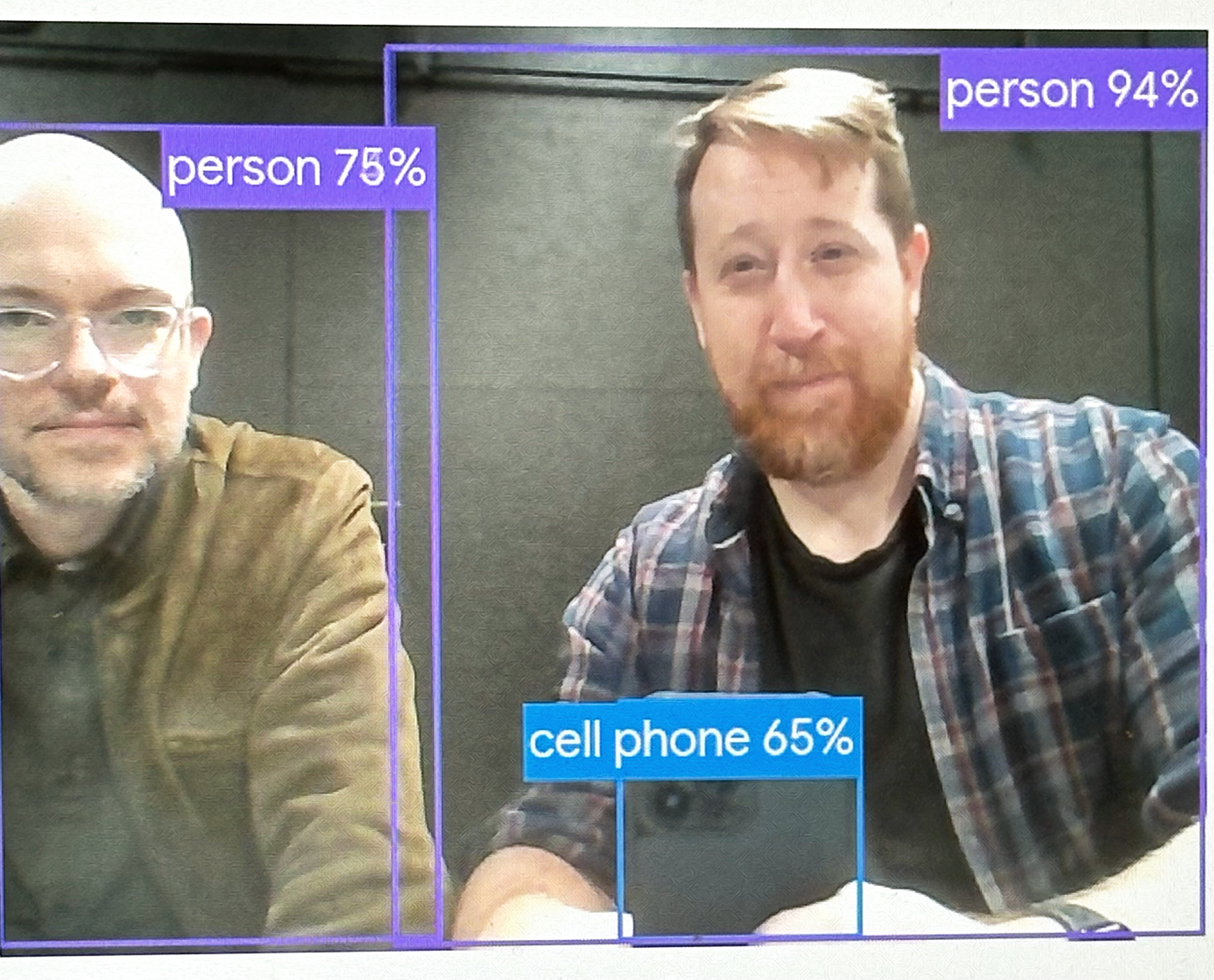
Plot Synopsis: A disagreement over whether to use AI in a production of Hamlet spirals into all-out war in this absurd meta-comedy about technology, Shakespeare, and the future of art.
HAMLET.AI follows a playwright and a director who clash over the use of AI-generated avatars on stage. With the audience as jury, the two make their case for and against “Hamlet.ai” using deepfakes, hired impersonators, custom chatbots, and increasingly elaborate ruses. As their arguments turn personal, prop poison is swapped with real poison and the backstage drama starts to echo Shakespeare’s most famous tragedy. In the end, the two friends must confront how far they are willing to go to defend their principles – and whether any of us are ready for the era of AI art.
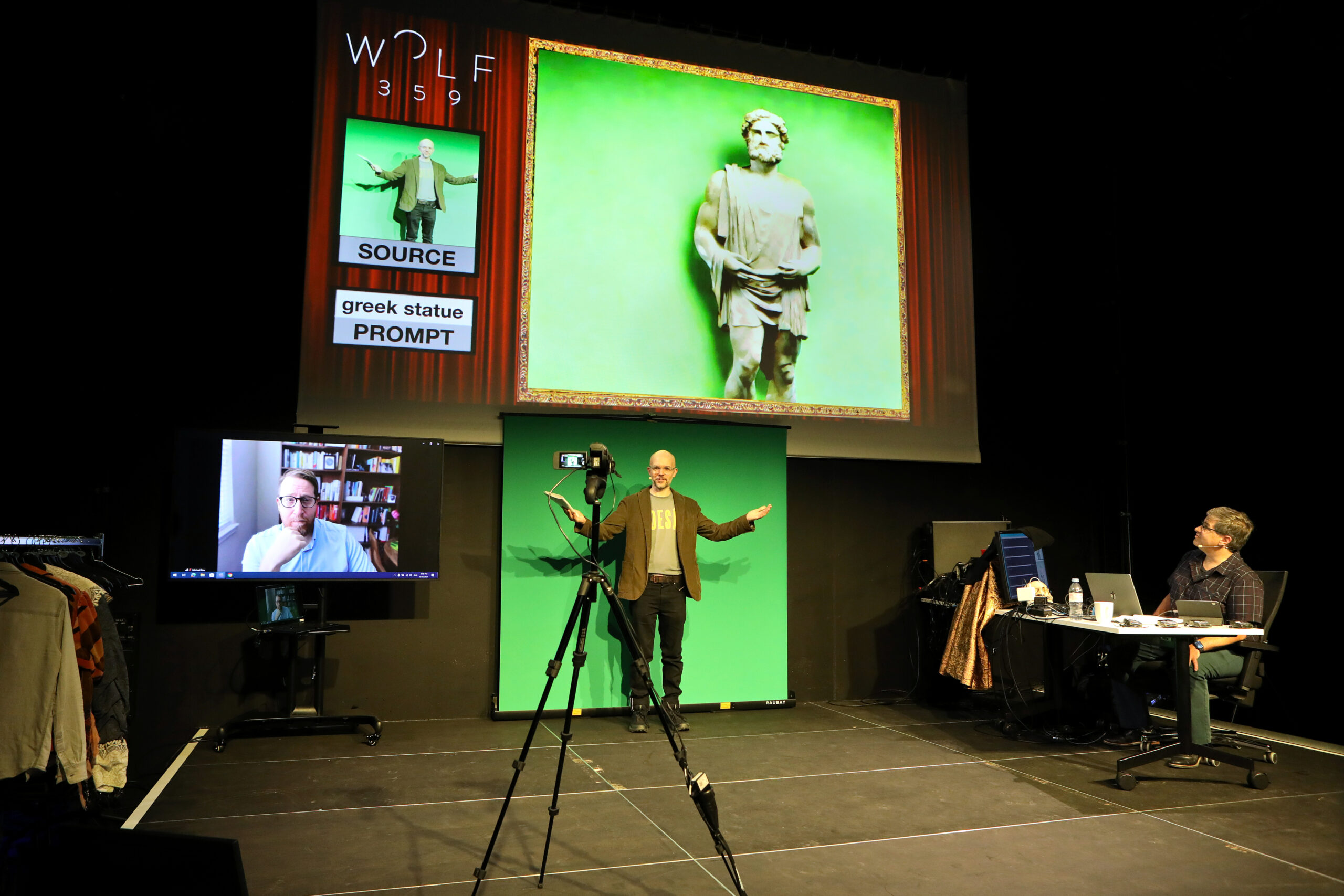
Hamlet.ai started with a dare: could our company use generative AI technology to make a new Hamlet? We spent 5 months in residence at the Academy of Theater and Digitality in Germany building tools toward this goal. But as we started to get closer, a simmering debate broke out among us:
Are these programs capable of making art?
Are they only tools for us to make art?
Are they a terrible mistake?
In the end, we did not make Hamlet, we made this show.
A show about the argument that almost destroyed our company.
Currently, the show includes three generative AI components, developed by Wolf 359:
- A live-image generator, which transforms a video feed using custom prompts (see photo from tech demo)
- Voice cloning and speech-to text tools for live performance
- Hamlet Engine, a tool for generating alternate scenes from Hamlet, with audience inputs
- Hamlet.ai involves the audience at various points. Volunteers can participate in tech demos during the play:
- Voice cloning
- Collaborative script generation
- Performing new scenes are they’re generated (see photo from workshop)
In addition, at a key moment in the show we invite the audience to participate in the debate. A performer hosts a “talkback” after the play-within-the play, asking for responses to the AI-generated scene just performed.
We also set up a live image generator station for the audience to try out after the show.
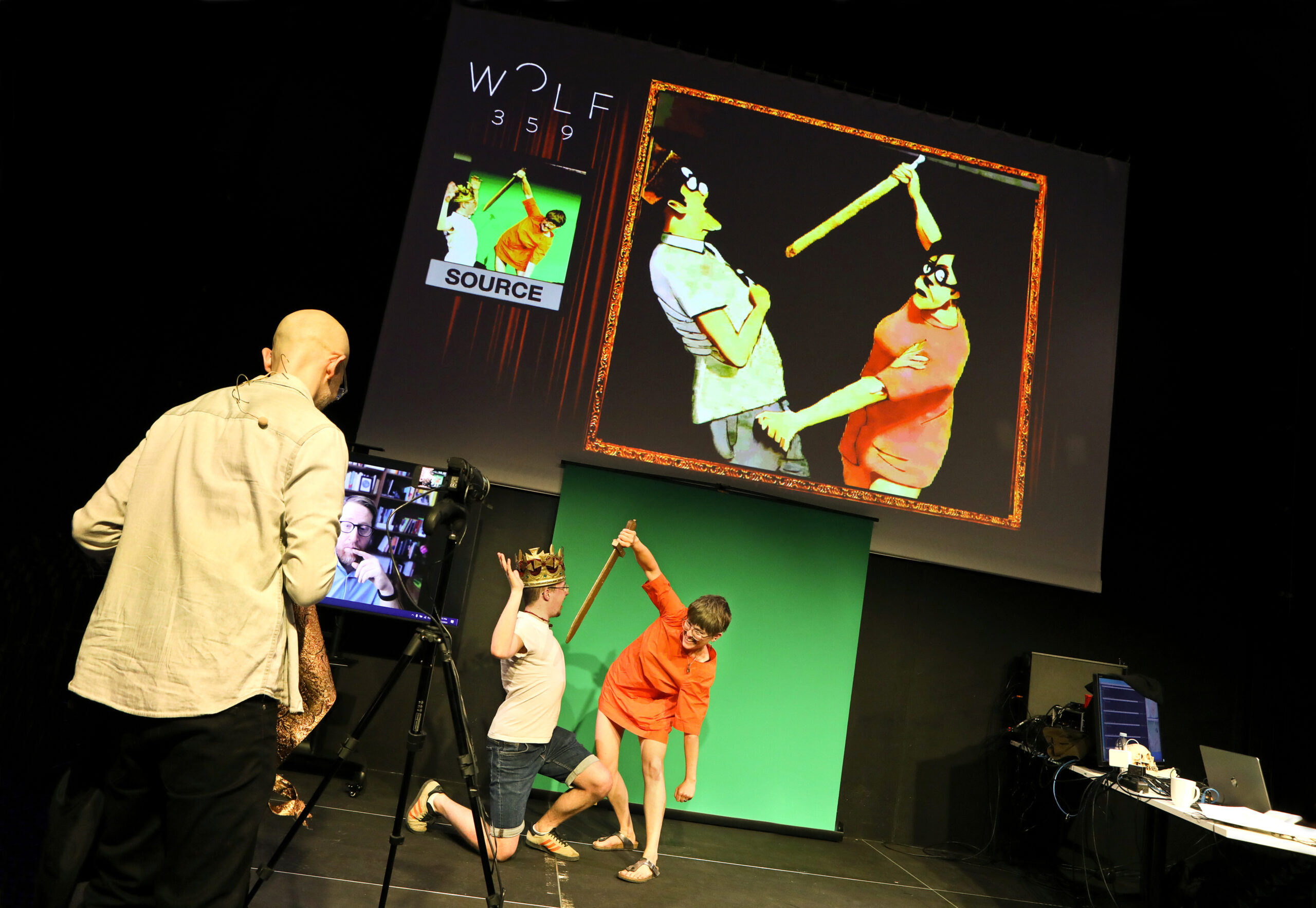
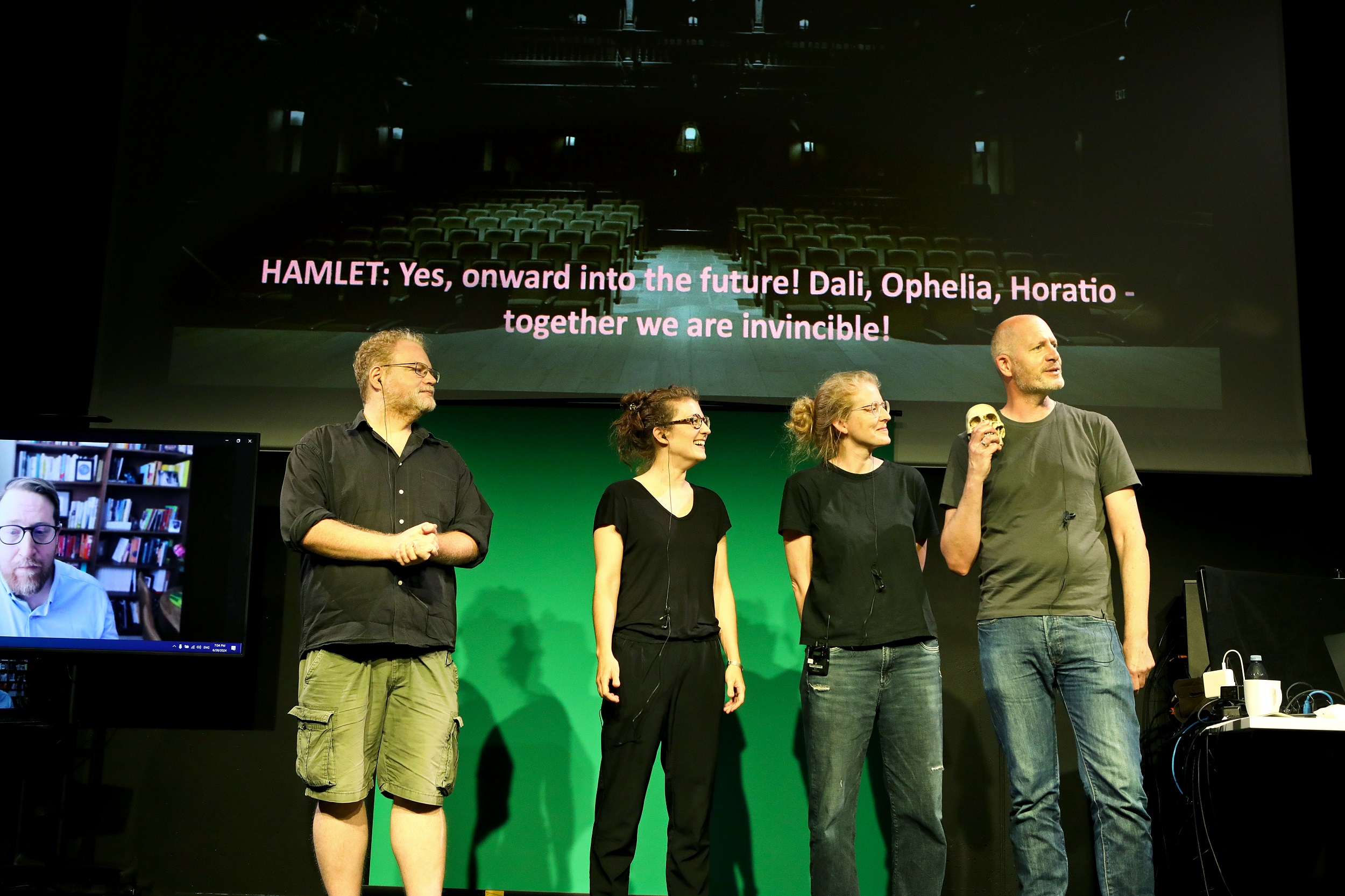
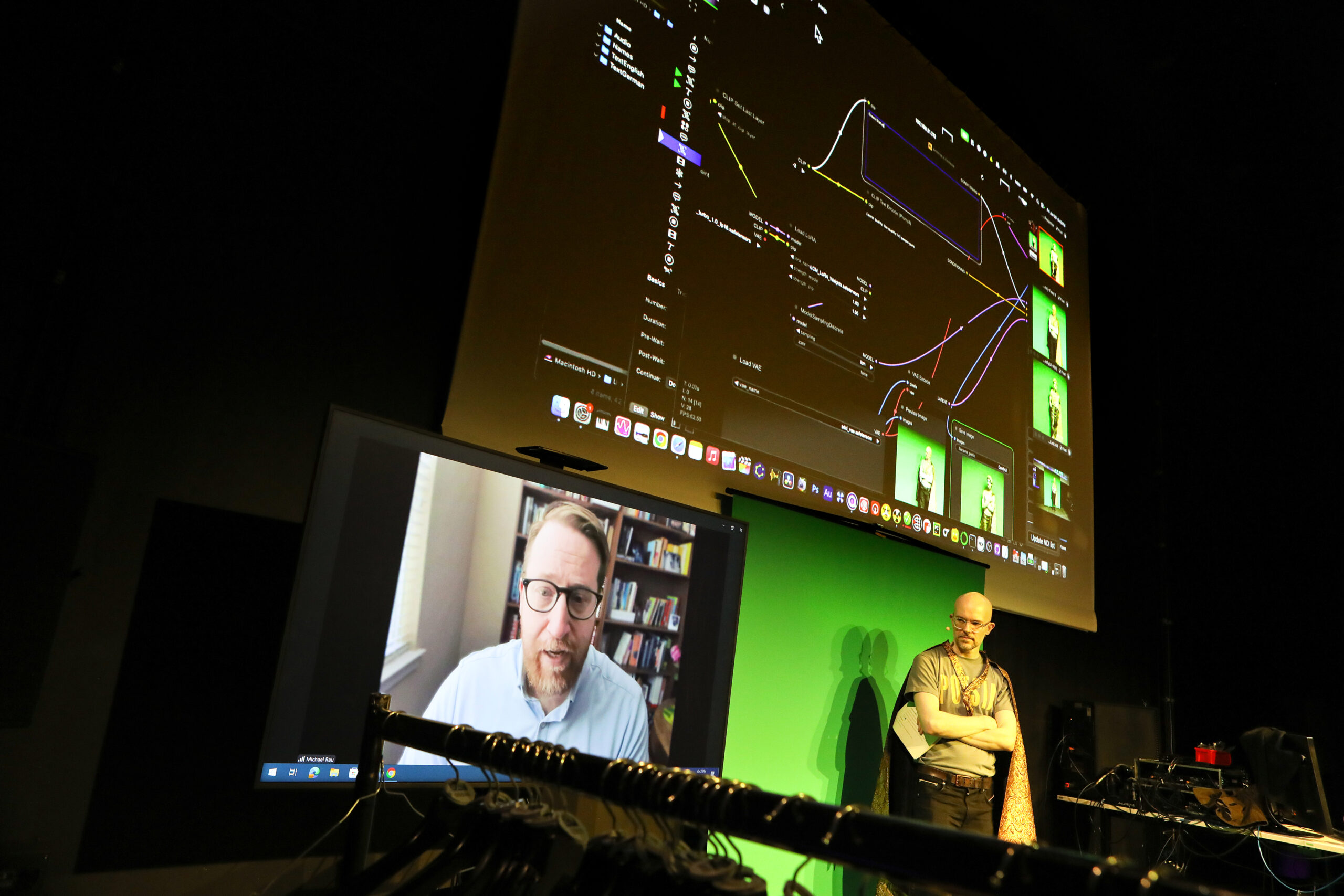
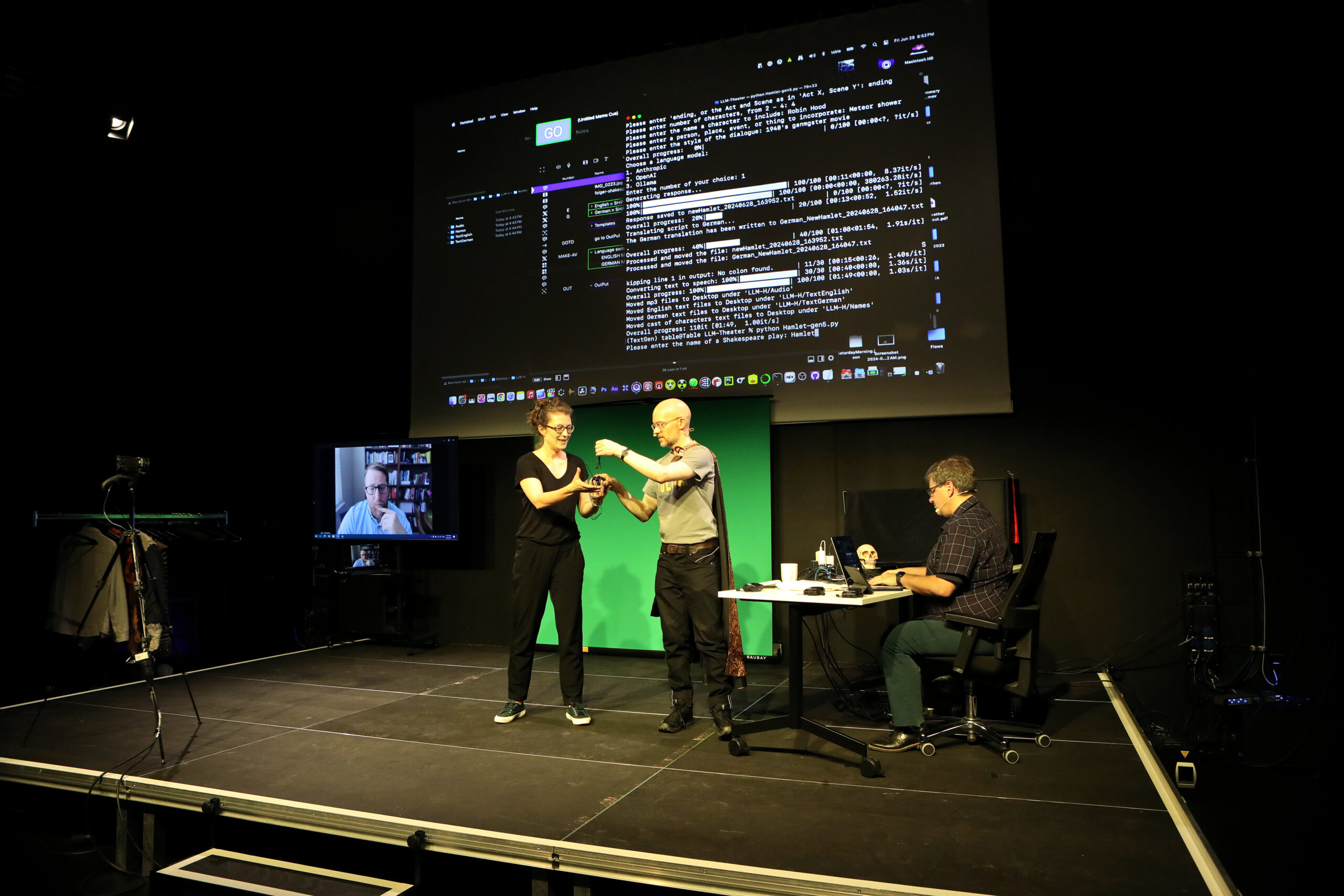


HAMLET.AI requires four actors, (2M, 1F, 1M or non-binary).
It can be performed in a black box theater; no fly space is necessary for the production. Standard lighting and sound packages are required. Although image generation is done locally on machines in the room, the show does require a connection to the internet for some components of the system.
The AI technology that that show requires has been built and tested by Wolf 359, and tours with the production.
HAMLET.AI will be available to tour in Summer 2025.